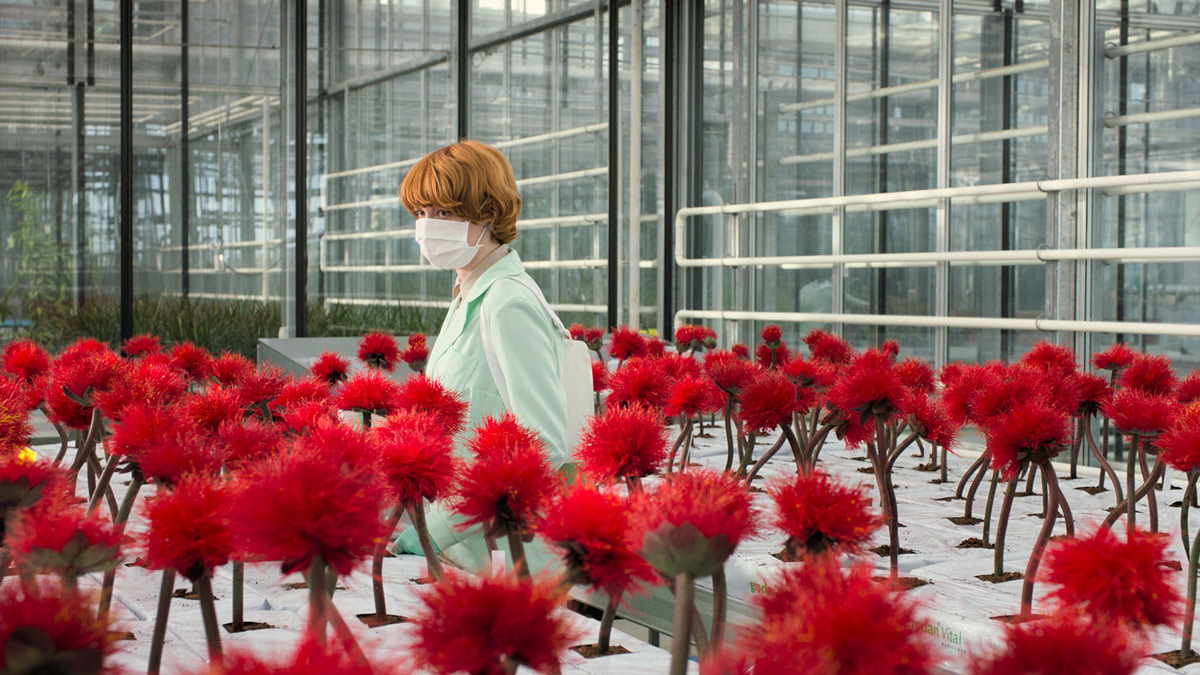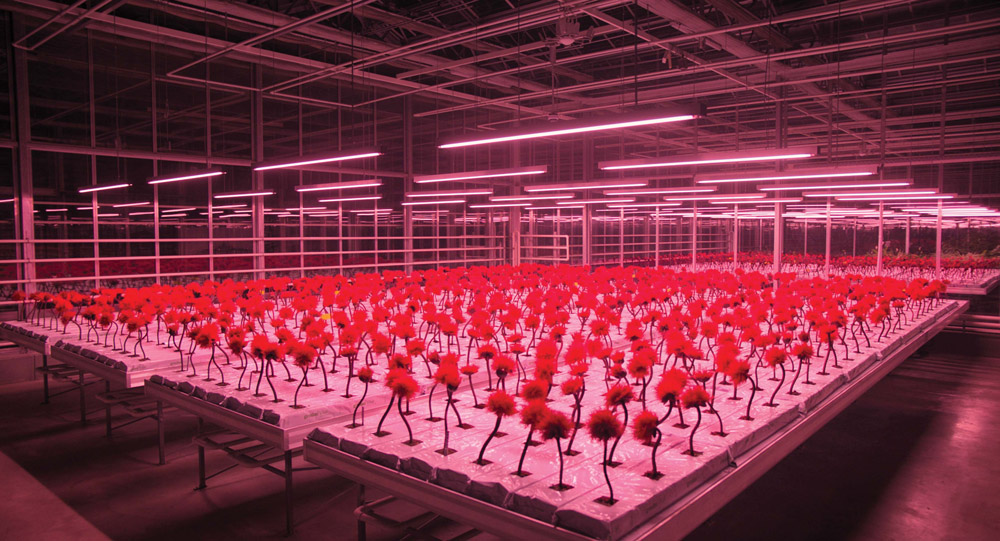
(c) COOP99 FILMPRODUKTION GMBH / LITTLE JOE PRODUCTIONS LTD / ESSENTIAL FILMPRODUKTION GMBH / BRITISH BROADCASTING CORPORATION / THE BRITISH FILM INSTITUTE 2019
"Little Joe" When the flower blooms, the concept of happiness disappears - mysterious art horror
2020.07.17
Describing the diversity of “definitions of happiness” with a horror taste
I don't know everything about others. This is a natural thing, but when a ``flower that may control humans'' is thrown into the mix, suspicions arise, and the suspense and horror elements suddenly increase. Little Joe, depicted in this work, does not deviate from its existence as a flower, but the sight of the petals slowly opening (the peri-peri... sound that gives you goosebumps) makes it look like a poor creature. more terrifying than
Oddly enough, for those of us who are constantly feeling the anxiety of not knowing when we will be infected due to the new coronavirus, Little Joe's presence may seem especially ominous to us. The fear of not knowing who is infected is no longer just a fictional thing that can only be seen in movies, but has become ingrained in our sensibilities.
What's even more horrifying is that this also happens to mothers and children who share blood. ``I don't know what my son is thinking'' is something that parents face when raising children, but here too there is a flicker of the presence of ``a flower that may control humans'', and Alice is also worried about this in her heart. It gets entangled in the darkness and desires that exist.

“Little Joe” (c) COOP99 FILMPRODUKTION GMBH / LITTLE JOE PRODUCTIONS LTD / ESSENTIAL FILMPRODUKTION GMBH / BRITISH BROADCASTING CORPORATION / THE BRITISH FILM INSTITUTE 2019
Alice, who has separated from her husband and is raising a child while doing research, is simultaneously obsessed with Joe and simultaneously harbors a desire to be liberated. However, as a mother, she felt a strong sense of guilt for ``prioritizing work,'' and tried to resolve this by going to counseling. However, by bringing Little Joe into her home, the feelings that she had kept under wraps open up.
The title "Little Joe" also indicates that Alice has two "sons", Joe and Little Joe. A major element of the work is the way Alice vacillates between these "two important beings," but as Joe undergoes a change, Alice also changes so that she doesn't distance herself from him. This development is terrifying. As Emily Beecham's dependence on her child grows stronger, Emily Beecham's performance takes on a darker tone.
It would be simple if this were "parents who can't let go of their children," but Joe can't rule out the possibility that he's being manipulated by Little Joe, and Alice is Alice, and maybe she's worried about her as a mother, or maybe she's a bit more aggravated by her dependence. It is difficult for the viewer to discern. The development of this work, which can be described as a calculated instability, is always shaky and emotionally unstable, making it impossible to predict how it will turn out, and it also shakes the spirits of the audience. In other words, it's the best of horror and suspense.
Furthermore, Little Joe's characteristic of being a ``flower that makes people happy'' comes into play here. I wrote that he was "controlled" by Little Joe, but as I watched it, my criteria for determining whether this was a good thing or a bad thing disappeared. Little Joe was born to make humans happy, and the people who "look like" him being controlled by pollen all say this in unison. "I'm very happy," he said. It may seem strange to those around you, but it comes from each individual's own ``concept of happiness.'' Whether it's correct or not is another story.
This ``happiness theory'' is also similar to `` Midsommar, '' which has become a social phenomenon in Japan. In this story, the concept of individuality disappears and the mind becomes liberated by becoming a member of a community called Holga, but ``Little Joe'' also depicts a new species of flower that saves people without discrimination. go. In other words, these two films are both ``horrors of salvation.''
The ``flower that makes people happy'' that Alice created may be something that makes people lose their ego. But is it completely evil? Or is it good?
No one knows the answer. There is no single definition of happiness.
Text: SYO
Born in 1987. After The Graduate from Tokyo Gakugei University, he worked at a film magazine editorial production site and a film information site before becoming a film writer/editor. Works on a wide range of topics including interviews, reviews, columns, event appearances, and recommendation comments. Contributed to ``CINEMORE'', ``FRIDAY Digital'', ``Fan's Voice'', ``Eiga.com'', ``Cinema Cafe'', ``BRUTUS'', ``DVD & Video Distribution'', etc. Twitter「 syocinema 」
Reserve “Little Joe” now ↓
"Little Joe"
7/17 (Friday) Uplink Shibuya, Uplink Kichijoji and other nationwide roadshows
Distribution: Twin
(c) COOP99 FILMPRODUKTION GMBH / LITTLE JOE PRODUCTIONS LTD / ESSENTIAL FILMPRODUKTION GMBH / BRITISH BROADCASTING CORPORATION / THE BRITISH FILM INSTITUTE 2019

